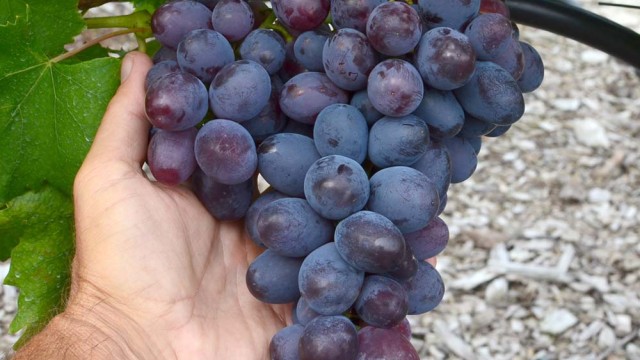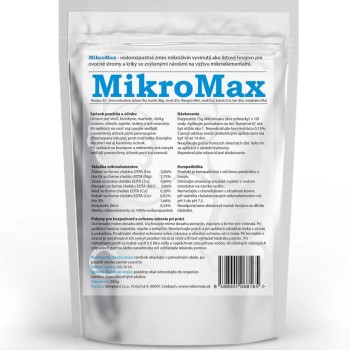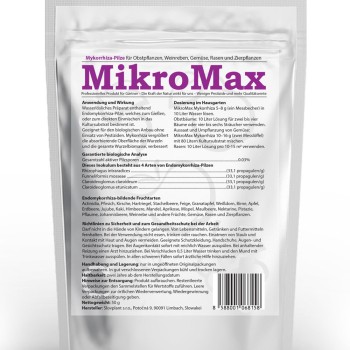
Šľachtenie stolového viniča na odolnosť voči hubovým chorobám je veľmi dôležité z niekoľkých dôvodov.
Znížené používanie fungicídov
Rezistentné odrody viniča vyžadujú menej chemických fungicídov na ochranu proti hubovým chorobám. To nielen znižuje negatívny vplyv pestovania hrozna na životné prostredie, ale tiež znižuje výrobné náklady a minimalizuje rezíduá fungicídov v hrozne, vďaka čomu je pre spotrebiteľov zdravšie.
Udržateľné poľnohospodárstvo
Odrody hrozna odolné voči hubovým chorobám sú v súlade s princípmi trvalo udržateľného poľnohospodárstva. Podporujú používanie stratégií integrovanej ochrany proti škodcom (IPM), ktoré sa spoliehajú skôr na prirodzených predátorov, prospešné mikroorganizmy a kultúrne postupy než na syntetické chemikálie, čo vedie k ekologickejšiemu obrábaniu vinohradov.
Zvýšená stabilita úrody
Vinič hroznorodý odolný voči chorobám je menej náchylný na choroby ako múčnatka, peronospóra a botrytída. To znamená, že vinohradníci môžu očakávať pravidelnejšie výnosy zo svojich viníc, dokonca aj v regiónoch s nestabilnou klímou, čím sa znížia ekonomické riziká spojené so stratami na úrode.
Vylepšená kvalita hrozna
Odrody hrozna odolné voči chorobám môžu produkovať kvalitnejšie hrozno, pretože sú menej stresované tlakom chorôb. To môže viesť k lepším chutiam, aromatickým profilom a celkovej kvalite hrozna, čo je nevyhnutné pre stolové hrozno a výrobu vína.
Znížená práca a náklady
Obrábanie viniča odolného voči hubovým chorobám vyžaduje menej práce a menší počet postrekov, čím sa znižujú náklady na pracovnú silu a spotreba drahých chemikálií. Vďaka tomu je pestovanie hrozna pre vinohradníkov ekonomicky výhodnejšie.
Dlhodobá udržateľnosť
Keďže hubové patogény si môžu vyvinúť odolnosť voči chemickému ošetreniu, šľachtenie na odolnosť voči chorobám ponúka udržateľnejšie dlhodobé riešenie. Odrody hrozna odolné voči chorobám ale strácajú časom svoju schopnosť odolávať napadnutiu chorobami. Preto je nutné zachovať šľachtiteľskú činnosť a neustále sa snažiť o udržanie a vylepšienie úrovne rezistencie voči hubovým chorobám.
Biodiverzita a zdravie ekosystémov
Zníženie používania chemických fungicídov pri pestovaní hrozna prospieva okolitému prostrediu tým, že chráni užitočný hmyz, pôdne mikroorganizmy a celkové zdravie ekosystému. To môže prispieť k udržaniu zdravšieho a vyváženejšieho vinohradníckemu ekosystému.
Adaptácia na meniacu sa klímu
Klimatické zmeny môžu viesť ku geografickým posunom v tlaku chorôb a vzniku nových chorôb hrozna v rôznych regiónoch. Odrody viniča odolné voči chorobám môžu pomôcť pestovateľom prispôsobiť sa týmto meniacim sa podmienkam a udržať stabilnú produkciu hrozna.
Šľachtenie stolového viniča na odolnosť voči hubovým chorobám je nevyhnutné pre udržateľnú a ekonomicky životaschopnú produkciu hrozna. Odrody odolné voči chorobám znižujú závislosť od chemických pesticídov, zlepšujú kvalitu hrozna, zlepšujú udržateľnosť životného prostredia a poskytujú dlhodobé riešenia problémov v oblasti zvládania hubových chorôb viniča. Tento výskum a šľachtiteľské úsilie sú kľúčové pre budúcnosť vinohradníckeho a vinárskeho priemyslu a celkové zdravie vinohradníckych ekosystémov.


